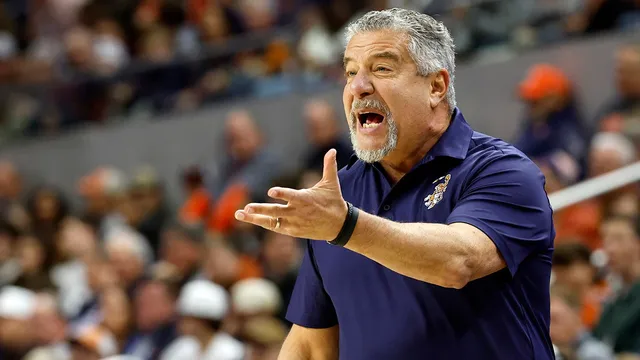
Bruce Pearl and Bernie Moreno urge Nobel Prize for Trump after ceasefire
2025-06-25 14:48- The ceasefire between Israel and Iran followed a 12-day military conflict involving significant U.S. action.
- Bruce Pearl and Bernie Moreno publicly called for Trump to be nominated for the Nobel Peace Prize.
- Their statements reflect a growing perception of Trump's diplomatic efforts as vital to peace in the Middle East.
Express your sentiment!
Insights
In the United States, Auburn Tigers men's basketball coach Bruce Pearl publicly called for President Donald Trump to receive the Nobel Peace Prize following an announced ceasefire between Israel and Iran. This declaration emerged after a conflict that lasted 12 days, which saw significant military escalation involving U.S. strikes on Iranian nuclear facilities and Iran's missile attacks on U.S. bases. Trump's announcement of the ceasefire was delivered via the social media platform Truth Social, highlighting what he deemed a monumental achievement in international diplomacy, marking the end of a violent conflict that had escalated tensions in the Middle East. In the aftermath of the ceasefire announcement, Pearl insisted that Trump's actions exemplified what it means to be a peacemaker and asserted that the resolution to the conflict demonstrated Trump's leadership in achieving peace where others had failed. He recalled previous conflicts in the region, emphasizing the longstanding issues that have plagued Iran and Israel since 1979, framing the ceasefire as a pivotal moment toward a safer Middle East and diminishing the threat of a nuclear-armed Iran. Pearl highlighted the potential for an improved relationship between the two nations, underscoring the need for stability in this historically volatile region. Simultaneously, Republican Senator Bernie Moreno introduced a resolution urging the Senate to nominate Trump for the 2025 Nobel Peace Prize, praising him for ending hostilities and dismantling Iran's nuclear advancements within a short timeframe. Moreno criticized past awardees like President Barack Obama, noting the sharp contrast between their actions and Trump's purported successes in brokering peace. This initiative echoed sentiments from other political figures as well, such as Congressman Earl Carter, who supported the nomination, emphasizing Trump's critical role in preventing Iran from obtaining nuclear capabilities and stopping ongoing military confrontations. This convergence of political endorsements and assertions of Trump's achievements highlights a significant moment in U.S. foreign policy discourse, where the intersection of sports, politics, and international relations has the potential to shape public opinion and action. As opinions diverge on the efficacy and morality of military interventions in international conflicts, the advocates for Trump's recognition frame these events as historic breakthroughs in peace-making efforts, urging broader support for his nomination for the prestigious award. The implications of these endorsements may have far-reaching effects on both domestic politics and international relations as the current geopolitical climate evolves.